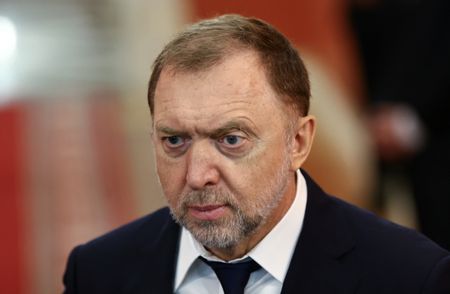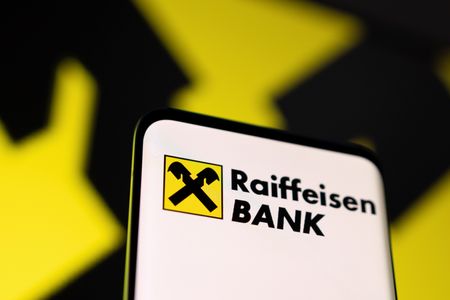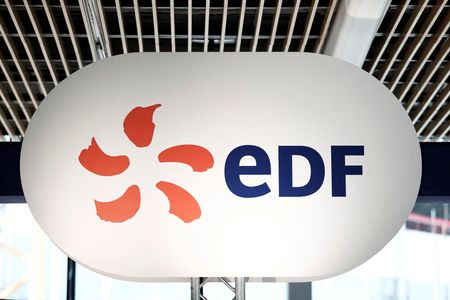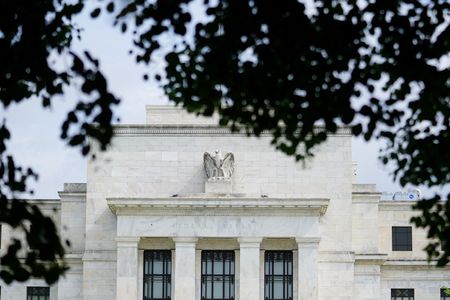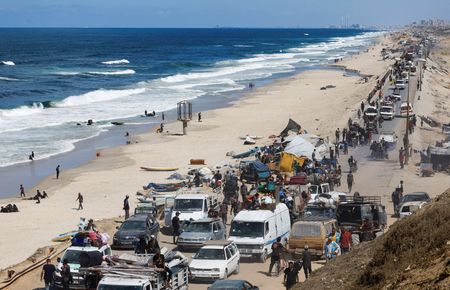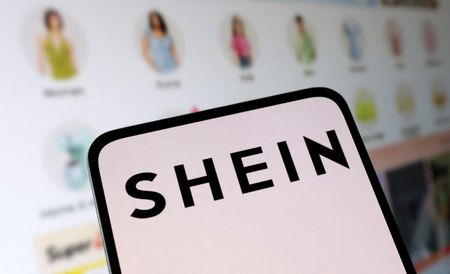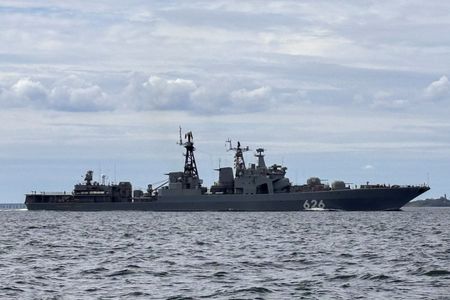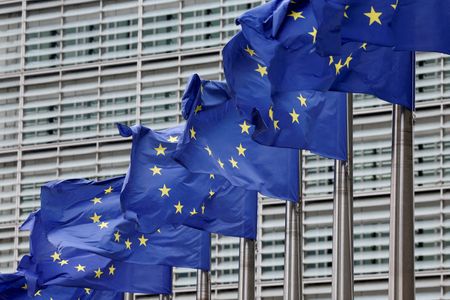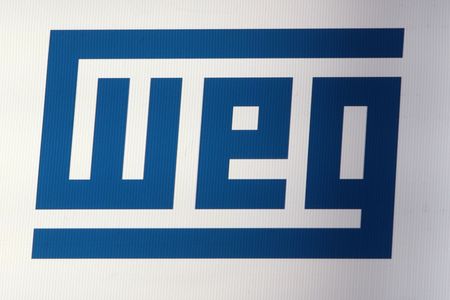By Jan Strupczewski and Lili Bayer
BRUSSELS (Reuters) -Austria told the EU on Friday it would not support the bloc’s latest sanctions package against Russia unless the EU unfroze some Russian assets to compensate Austria’s Raiffeisen Bank for penalties imposed by Russia, diplomats said.
But other EU governments said they could not accept such a move because it would legitimise Russian courts that have retaliated against EU sanctions by ordering the confiscation of Western assets. They fear it could encourage other oligarchs to take this approach.
The clash between Austria and other EU countries took place at a closed-door meeting of ambassadors of EU countries in Brussels, devoted to finalising the EU’s 19th sanctions package against Moscow for its invasion of Ukraine.
In January, a Russian court ordered Raiffeisen Bank International to pay 2 billion euros in damages following a lawsuit brought by a company previously owned by Russian oligarch Oleg Deripaska.
The court said the bank could recover that fine by taking over its equivalent in shares in Austrian construction company Strabag, previously part-owned by Deripaska. Raiffeisen has so far been unable to do, because they are immobilised under EU sanctions.
Vienna wants to use the 19th sanctions package to unfreeze the 2 billion euros worth of Strabag shares so that Raiffeisen can take them.
“Austria said they can’t agree with the package if Raiffeisen is not included,” one EU diplomat said. Two others confirmed that was the Austrian position in the meeting.
“Of course Austria is defending the interests of Austrian companies in Brussels and seeking to ensure that the Russian aggressor does not profit twice,” Austria’s foreign ministry said in a statement, apparently referring to the damages and eventually recouping Strabag shares.
Shares in Raiffeisen closed 7.4% higher on Friday, before the end of the ambassadors’ discussions.
MOST EU COUNTRIES AGAINST AUSTRIAN STANCE
A large majority of EU countries were strongly against including such a move, arguing that it would create a way for Moscow to swap European corporate assets in Russia for frozen Russian assets in Europe.
“All the other countries were against it, even Germany and France,” another diplomat said. Only the European Commission sided with Vienna, diplomats said.
“If we go down this path, we could be unfreezing quite a lot of Russian assets and I don’t think this is the goal,” another EU diplomat said.
Diplomats said it was not clear what the way out of the stalemate was and that discussions would continue next week.
Raiffeisen and the European Commission declined to comment.
The Strabag shares have remained frozen under EU sanctions since 2022, when Deripaska was accused of supporting Russia’s military-industrial complex following the invasion of Ukraine.
Reuters reported on Wednesday that Raiffeisen, which is the largest Western lender operating in Russia and serves as a key financial bridge to the West, had failed in another attempt to sell a stake in its Russian business.
Russian officials opposed the sale, fearing that, if it went to a domestic buyer, that might trigger further sanctions against the lender, according to a source.
(Reporting by Jan Strupczewski in Brussels, Mrinmay Dey in Bengaluru, Alexandra Schwarz-Goerlich in Vienna and Kirsti Knolle in Berlin. Additional reporting by Makini Brice. Editing by Edwina Gibbs, Tomasz Janowski and Rosalba O’Brien)

